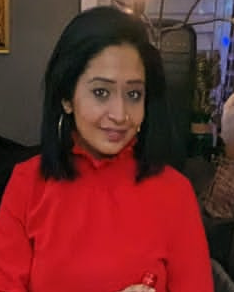The Stakes Feel Sky-High — But What If They Aren’t?
You’re sweating. Heart racing. You’ve rehearsed every bullet point on your resume, practiced answers to “tell me about yourself” seventeen times in the mirror, but you still feel like a fraud walking into that conference/Zoom room. You’re scared of bombing another interview. The interview coaching experts won’t tell you this, but here’s the truth: your life won’t change dramatically if you don’t get this specific job — but the way you show up for interviews can change everything about your career trajectory.
As someone who’s guided hundreds of mid-career professionals through successful job transitions, I’ve seen the same patterns emerge again and again. The most qualified candidates often struggle the most in interviews, not because they lack skills, but because they’ve never learned the psychological game of professional storytelling. Interview coaching isn’t just about preparing answers; it’s about transforming your entire relationship with professional conversations.
Whether you’re navigating a recent layoff, feeling stuck in your current role, or simply tired of walking away from interviews knowing you didn’t represent your best self, this comprehensive guide will reveal why traditional interview preparation fails and what works in today’s competitive job market.
Pain Point #1: “I Suck at Talking About Myself”
This is the number one complaint I hear during interview coaching sessions, especially from high-achievers and people-pleasers who’ve spent years deflecting credit and focusing on team success. The discomfort with self-promotion runs so deep that many professionals would rather endure root canal surgery than explain why they’re the right person for a role.
Here’s what traditional interview coaching gets wrong: it tells you to “sell yourself” without addressing the fundamental psychological barrier. You’re not bad at talking about yourself — you’re uncomfortable with the artificial context of professional bragging. The solution isn’t to become more boastful; it’s to reframe the entire interaction.
The Connection Reframe for Interview Success
Instead of thinking “I need to convince them I’m amazing,” shift to “I need to help them understand how my experience connects to their challenges.” This isn’t semantic gymnastics — it’s a fundamental mindset shift that transforms how you communicate in interviews.
When you focus on connection rather than promotion, several things happen naturally:
- Your body language relaxes because you’re having a conversation, not delivering a performance
- Your examples become more specific and relevant because you’re thinking about their needs
- Your confidence increases because you’re sharing authentic experiences rather than rehearsed sound bites
During interview coaching sessions, I often watch clients visibly relax when we practice this reframe. Instead of rattling off accomplishments like a grocery list, they start weaving stories that demonstrate value. This is where professional coaching makes the difference — most of my clients don’t realize how genuinely interesting and valuable they already are until we work together to uncover their unique professional narrative.
Pain Point #2: “What If I Ramble or Freeze?”
The fear of rambling or freezing up during interviews creates a vicious cycle. You over-prepare to avoid rambling, which makes you more likely to freeze when your rehearsed answer doesn’t fit the actual question. Or you try to stay flexible, end up rambling, and leave feeling like you talked in circles for forty-five minutes.
Here’s the interview coaching secret that changes everything: perfection isn’t the goal. Recovery is.
The Power of Professional Recovery
The most memorable candidates aren’t those who deliver flawless monologues. They’re the ones who demonstrate emotional intelligence, self-awareness, and grace under pressure. When you ramble or lose your train of thought, your response in that moment reveals more about your professional character than any perfectly crafted STAR method example ever could.
I teach my interview coaching clients this exact script: “You know what, let me pause here and be more concise. I want to make sure I’m directly answering your question.” This phrase accomplishes three things simultaneously:
- It shows self-awareness and professional maturity
- It demonstrates that you value the interviewer’s time and attention
- It gives you a clean slate to provide a more focused response
The magic happens when you realize that acknowledging imperfection makes you more relatable and trustworthy. Hiring managers don’t want robots; they want humans who can navigate unexpected situations with composure.
Pain Point #3: “I Don’t Know What They’re Really Looking For”
This uncertainty leads to one of the most common interview coaching mistakes: trying to be everything to everyone. You end up giving generic answers that could apply to any role at any company, missing the opportunity to position yourself as the specific solution to their specific challenges.
The danger of guessing what they want cannot be overstated. When you don’t understand the role’s core requirements, you waste precious interview time highlighting irrelevant experiences while glossing over your most valuable qualifications.
Strategic Positioning Through Deep Job Analysis
Effective interview coaching involves more than practicing common questions. It requires strategic analysis of the role, company, and industry context. During my coaching sessions, we sit together and dissect the job description line by line, mapping your experiences to the job description’s requirements.
This process reveals insights that transform your interview performance:
- Which of your experiences are most relevant (not just most impressive)
- How to frame challenges you’ve faced as assets rather than limitations
- What language and priorities matter most to this specific organization
- How to position career transitions or gaps as strategic decisions
The goal isn’t to manufacture fake enthusiasm for requirements you can’t meet. It’s to illuminate authentic connections between your background and their needs that you might have overlooked. This strategic positioning work is where interview coaching creates the biggest impact — helping you see your own value through their lens.
Pain Point #4: “If I Don’t Get This Job, I’m Screwed”
The desperation that comes with financial pressure, recent layoffs, or career stagnation creates an energy that hiring managers can sense from across the conference table. When you walk into an interview believing this opportunity represents your only path forward, you inadvertently communicate that you need them more than they need you.
This dynamic is particularly challenging for mid-career professionals who’ve invested years building expertise in specific industries or roles. The fear of starting over, combined with financial responsibilities, creates a perfect storm of interview anxiety that no amount of traditional coaching can address without tackling the underlying mindset.
From Desperation to Strategic Opportunity
Here’s the perspective shift that changes everything: the goal of an interview isn’t to get the job. It’s to get to the next level of your career journey, whether that’s with this company or another one.
When you approach interviews as strategic conversations rather than do-or-die auditions, several things shift:
- You ask better questions because you’re genuinely evaluating fit, not just trying to impress
- You negotiate from a position of strength because you’re choosing them as much as they’re choosing you
- You perform better because desperation doesn’t cloud your communication
- You make better long-term career decisions because you’re thinking strategically rather than reactively
This mindset work is crucial for interview success, but it’s also the most challenging part to do alone. Having an objective professional coach helps you maintain perspective when the stakes feel overwhelming and practice maintaining confidence even when you really, really need the job.
The Art of Strategic Storytelling in Interviews
Even with the right mindset and preparation, most professionals struggle with the mechanics of compelling interview storytelling. You’ve probably heard about the STAR method (Situation, Task, Action, Result), but standard STAR responses often fall flat because they focus on what happened rather than why it matters.
The STAR+ Method for Interview Coaching Success
My interview coaching approach uses what I call the STAR+ method, which adds a crucial fifth element: Significance. After describing the situation, task, action, and result, you explicitly connect the story to the role you’re pursuing.
Here’s how STAR+ transforms a standard interview response:
Traditional STAR: “In my previous role, I managed a team through a difficult reorganization, implemented new processes, and improved efficiency by 30%.”
STAR+ Version: “In my previous role, I managed a team through a difficult reorganization, implemented new processes, and improved efficiency by 30%. This experience taught me how to maintain team morale during uncertainty while driving operational improvements — which seems directly relevant to the growth challenges YOU mentioned THIS department is facing.”
The significance statement accomplishes two critical goals: it demonstrates that you understand their needs and shows how your experience directly transfers to their situation. This isn’t just better storytelling; it’s strategic positioning that helps hiring managers envision you succeeding in their environment.
Adapting Your Core Stories for Maximum Impact
The most effective interview coaching focuses on developing a portfolio of five to seven core stories that showcase different aspects of your professional value. The story stays the same — how you tell it depends on the person in front of you and the specific role requirements.
For example, a project management story might emphasize leadership skills for one interview, technical problem-solving for another, and stakeholder communication for a third. This flexibility allows you to stay authentic while tailoring your message to resonate with different audiences.
The Psychology of Interview Confidence
Confidence in interviews isn’t about convincing yourself you’re perfect for every role. It’s about trusting that your authentic professional self brings value, even if this particular opportunity isn’t the right fit. This distinction is crucial for sustainable interview success.
Building Authentic Professional Confidence
Authentic confidence comes from three sources:
- Clarity about your value: Understanding what you bring to organizations and being able to articulate it clearly
- Preparation without over-rehearsal: Knowing your stories and key messages while staying flexible in delivery
- Perspective on outcomes: Recognizing that interview rejection often reflects fit rather than worth
Interview coaching helps build all three confidence sources simultaneously. Through practice conversations, story development, and mindset work, you develop the internal stability to show up authentically regardless of external pressure.
What Real Interview Coaching Looks Like
Effective interview coaching goes far beyond reviewing common questions and practicing answers. It’s a strategic process that addresses the psychological, tactical, and positioning elements that determine interview success.
The Complete Interview Coaching Process
During my coaching sessions, we work through several critical components:
Mindset Reset: We identify and address the limiting beliefs that undermine your interview performance before they sabotage your opportunities.
Strategic Positioning: We analyze target roles and companies to understand exactly how to position your background for maximum relevance and impact.
Story Development: We craft compelling narratives that showcase your value while demonstrating clear connections to prospective employers’ needs.
Communication Practice: We rehearse not just what you’ll say, but how you’ll say it, including body language, vocal tone, and energy management.
Scenario Planning: We prepare for difficult questions, unexpected situations, and challenging interview dynamics so you feel confident handling whatever comes up.
Follow-up Strategy: We develop professional follow-up approaches that reinforce your candidacy without appearing desperate or pushy.
This comprehensive approach addresses the real reasons professionals struggle in interviews: not lack of qualifications, but inability to communicate their value effectively under pressure.
The Strategic Advantage of Professional Interview Coaching
The difference between adequate and exceptional interview performance often comes down to the quality of preparation rather than quantity. Many professionals spend hours practicing standard questions but never address the core issues that undermine their effectiveness.
Professional interview coaching provides the strategic advantage of objective feedback, proven frameworks, and psychological support that’s impossible to achieve through self-preparation alone. When you’re in the middle of a job search, especially during challenging career transitions, having an experienced guide makes the difference between stumbling through interviews and approaching them with strategic confidence.
The investment in interview coaching pays dividends not just in immediate job opportunities, but in long-term career advancement. The communication skills, confidence, and strategic thinking you develop through professional coaching serve you throughout your career, from internal promotion conversations to board presentations.
Your Next Chapter Starts with Better Interviews
If you’ve been struggling with interviews, feeling like your qualifications aren’t translating into offers, or approaching each opportunity with more anxiety than excitement, you’re not alone. The gap between being qualified and being selected often comes down to interview performance — and interview performance is absolutely teachable.
The strategies outlined in this guide represent just the beginning of what’s possible when you approach interviews strategically rather than desperately. With the right coaching, mindset shifts, and systematic preparation, you can transform interviews from anxiety-inducing ordeals into engaging professional conversations that showcase your authentic value.
Remember: the goal isn’t to become someone different in interviews. It’s to become the most compelling version of who you already are. Your next opportunity is waiting, and with the right support, you’ll recognize it when it arrives — because you’ll have the confidence and skills to pursue it successfully.
The difference between “meh” and “memorable” in interviews is almost always preparation. But it has to be the right kind of preparation, focused on the psychological and strategic elements that actually determine outcomes rather than surface-level question practice that misses the deeper dynamics at play.
Ready to Transform Your Interview Performance?
Ready to stop bombing interviews and start showing up as the confident professional you actually are? Let’s talk about what taking your interview power back actually looks like for your specific situation.
Book a free strategy call and discover how Eunioa’s interview coaching can help you navigate your next career chapter with clarity and confidence.
Visit: https://eunioa.io/career/
Connect with us on LinkedIn: www.linkedin.com/company/eunioa
Don’t let interview anxiety and job search isolation derail your career goals. Your next opportunity is waiting, and with the right interview coaching support, you’ll land it faster than you think.






